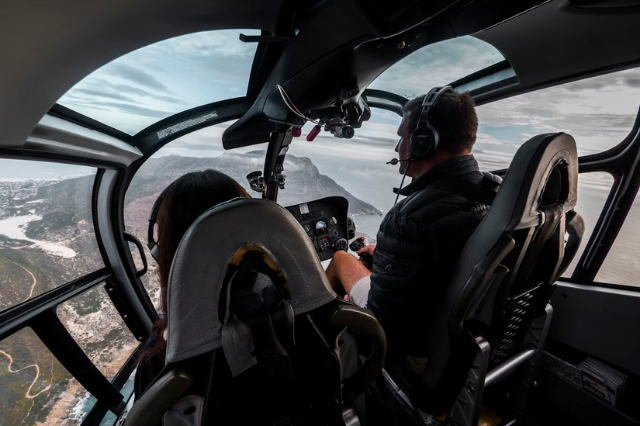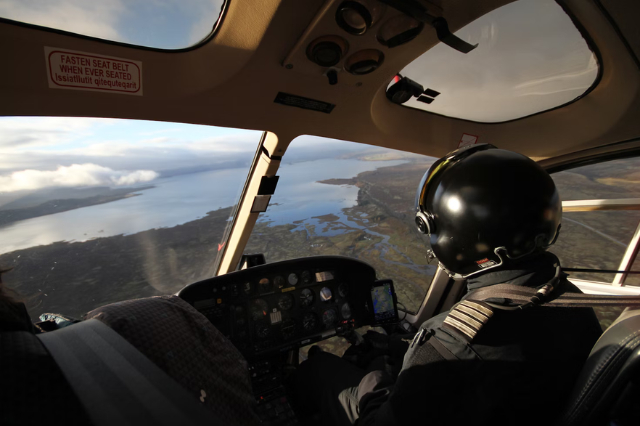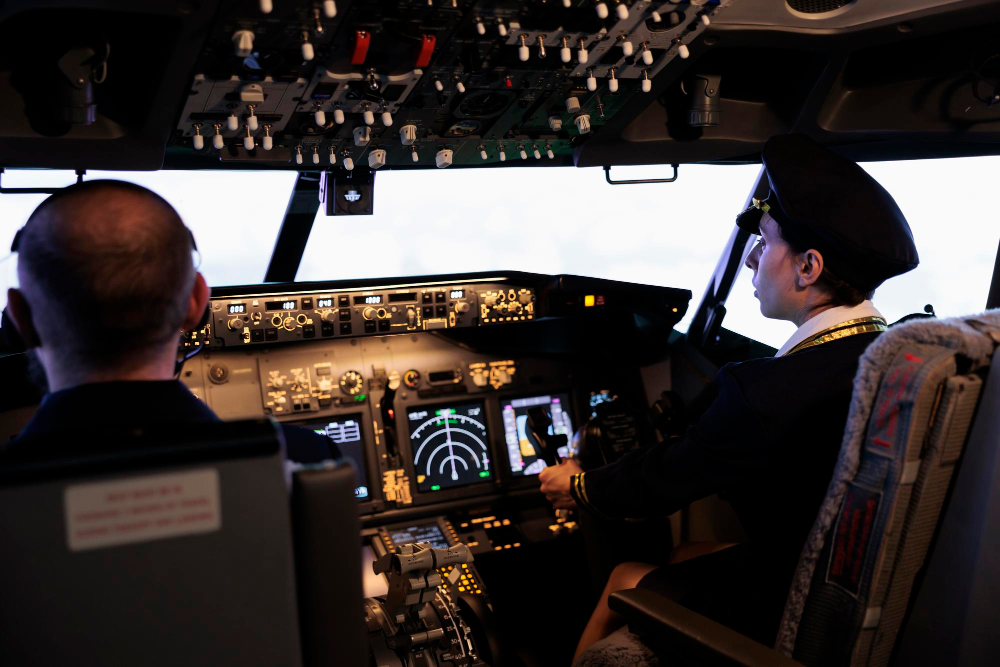The abilities of a pilot are crucial for ensuring the safety of air travel. What attributes do you possess that make you a skilled pilot?
Pilots can control demanding flight environments by utilizing important skills such as analytic decision-making, focused situational awareness, and performing under high-pressure conditions.
By undergoing intensive training and following strict licensing procedures, pilots gain the skills needed to operate complex aircraft systems with precision. People with adept cognitive abilities can anticipate risky situations by reacting quickly and methodically.
Pilot training offered by Wayman Aviation Flight School provides you with practical experience in cockpit procedures and aircraft handling, with traditional classroom learning in aeronautics.
And all of these under the supervision of an experienced instructor, allowing students to develop the necessary skills for proficiency.
A: Soft Skills to Learn for a Pilot

Flight schools offer thorough, systematic instruction to instill these important qualities and prepare proficient, safety-driven pilots. Here are some crucial soft skills that a competent pilot should bear:
1: Teamwork and Communication
Efficient communication is crucial in the day-to-day duties of every pilot.
Pilots need to maintain constant communication with Air Traffic Control (ATC) and passengers onboard the aircraft to guarantee safety for all.
Your pilot skills need to involve both effective communication and active participation in a team. These two things are closely linked.
During their education, students have to communicate well with their teacher, much like the First Officers and Captains need to communicate in their jobs.
You will also have to work together with your team members, such as dispatchers, crew, and ATC, to guarantee effective coordination of all tasks throughout the flight.
2: Grit and Perseverance
Pilots must possess determination. Grit means having the persistence to push through challenges. This is essential for long flights lasting over 12 hours and throughout your entire career.
It’s important to remember that on difficult days when it feels like you haven’t spent time with your family, you are still working towards the goal of a successful career as a pilot.
That said, knowing when to ask for assistance or when to step back is equally important.
Having perseverance does not necessarily involve constantly pushing yourself to the point of physical and mental exhaustion.
It involves recognizing your boundaries, being present for your passengers in times of need, and knowing when to take a break or leave the job if it no longer suits you.
3: Remaining Calm Under Immense Pressure
Pilots need to show they can stay composed in challenging or frightening scenarios.
In situations where a passenger is disruptive or endangered, communication with the ground is lost, plane malfunctions occur, or a severe storm develops, it is important to remain calm.
When you start to feel panicked, your ability to make proper, strategic decisions for your next steps diminishes. Fortunately, throughout your training as a commercial pilot, you’ll be instructed on how to manage a variety of emergency scenarios.
Understanding what action to take can frequently pose the biggest challenge in maintaining a sense of tranquility.
Just because you experience nerves sometimes doesn’t imply you can’t achieve intended success in becoming a commercial pilot. It just means you will need to put in more effort to discover strategies to manage those feelings.
4: Physical and Psychological Fitness
Being physically fit allows one to withstand both physical and mental stress.
Pilots follow strict sleep routines to prevent fatigue from impairing their skills. They consume healthy meals, work out consistently, and avoid drinking alcohol before flying. Flexibility is needed in tight cockpits due to limited space.
Emotional health is just as important. Pilots can face intense pressure, frustration, sadness, and self-questioning at times. Effective aviation psychologists instruct mental strategies to evaluate emotions and maintain clear thinking in challenging situations.
Pilots tend to undergo thorough medical examinations to assess their abilities and restrictions. Neglecting one’s physical or mental health has too many consequences to simply overlook.
5: Attitude, Confidence, and Self-Discipline
Numerous pilots transition from being hesitant students to becoming overly confident ‘experts’ – therefore, strive to maintain self-control!
Be cautious as the field of aviation often humbles overconfident pilots. What is your reaction to situations involving low fuel, inclement weather, or potentially more serious incidents? Your response to these incidents and ability to adapt your thinking shapes your identity as a pilot.
Some people may quickly abandon flying, permanently afraid to fly alone in the future. Others will carry on yet feel uneasy with the accountability that accompanies a pilot license.
However, individuals who are most mentally prepared for flying will persist, but with increased maturity compared to previously.
If you have never felt overconfident while flying, then that is fantastic.
You shouldn’t jump the gun.
You want to strike a balance where you are highly disciplined, aware of the risks, and recognize your limitations, yet still find joy and accept the challenge of being a pilot.
Also, you may receive recommendations like “be cautious when flying.”
This is acceptable for a new student pilot, but a formula that is overly simple for pilots who regularly fly light aircraft. A cautious attitude can easily transform into a fearful one.
As a pilot, it is important to maintain confidence in your skills and dedication to safely flying, regardless of any challenges that may arise.
B: Hard Skills to Learn for a Pilot

While advancing through structured programs at aviation schools in the United States, pilots are consistently assessed on their compliance with specific procedures and lists of tasks. But that’s not the end of the hard skills for an air pilot; the list goes on. Some of them are:
1: Excellent Situational Awareness
Pilots stay attentive to every aspect of operating conditions, including –
- Frequently scanning panels monitors speed, course adjustments, fuel levels, and hydraulics.
- Recognizing small noises signals potential mechanical problems.
- Observing colleagues ensures great communication regarding changing circumstances.
External vigilance always remains constant if you are flying a flight.
Pilots constantly monitor the sky, observing visibility, cloud ceiling levels, storm movement, and wind shear. Updates on flight paths and runway access in traffic control enhance their overall situational awareness. It allows for proactive decision-making for reactive crisis management.
2: Better Decision-Making Skills
Quick evaluation of numerous factors comes before making choices, particularly in stressful situations. Pilots evaluate various options based on goals, safety requirements, and limited data. They put solutions into action and promptly adapt to changing circumstances.
In instances of equipment malfunctions, pilots consult emergency checklists.
The established protocols methodically guide through settings to regain control of the aircraft. Pilots routinely train in emergency procedures to make them instinctual.
Drills instill the belief that crew coordination, skilled piloting, and rational thinking can solve most issues, enhancing confidence.
3: Flexibility and Adaptability
Rigid thinking can sometimes lead to paralysis when quick changes are required due to in-flight emergencies, weather, or congested airspace.
Pilots practice for various situations that require innovative choices.
Simulators instruct on regaining control following system malfunctions. Aviation’s safety culture promotes inquiry and updating old beliefs, enhancing flexibility.
Pilots are aware that being too confident can be deadly. Anticipating the unforeseen involves using expertise in unfamiliar scenarios. Pilots get ready, talk, and manage risks ahead of time. Most emergent issues can be controlled if addressed promptly.
Learning from close calls in aviation helps in developing the ability to bounce back from disasters. The top pilots epitomize the quality of being humbly adaptable.
4: Understanding Avionics and Aircraft
Before departure, the pilot must inspect the aircraft’s overall condition, internally and externally. Pilots use several checklists before, during, and after flights to verify the aircraft’s condition.
They additionally monitor fuel levels, check engine performance, utilize the radio system, review flight plans, and navigate the aircraft.
Each of these abilities is highly specialized and necessitates a significant amount of expertise, yet every single one is essential for ensuring safe functioning.
5: Learning about Physics and Math
As a pilot, it is essential to have a basic knowledge of math and physics.
Subjects like aerodynamics, weight distribution, and route planning require mathematical equations and computations.
Throughout the training process, you will be educated on all of these topics and additional ones, so don’t worry – flight instructors will be available to assist you every step of the way!
Before enrolling in flight school, it could be advantageous for you to consider taking some math and physics courses beforehand to prepare yourself, although it is not mandatory.
The Bottom Line
In essence, becoming a pilot entails a mix of abilities, character qualities, and a love for aviation. In this blog post, we’ve outlined 10 indicators that suggest you have the potential to excel as a pilot. While not comprehensive, if you recognize these characteristics in yourself, then you’re probably headed in the right direction to become a successful pilot.
But don’t forget flying an airplane is a difficult profession that demands commitment, effort, and continual education. However, if you are passionate and committed to pursuing your dream of becoming a pilot, then it is worth following through. If you are prepared to start your journey towards flying in the sky, get in touch with Wayman Aviation Flight School now.
Read Also:




























